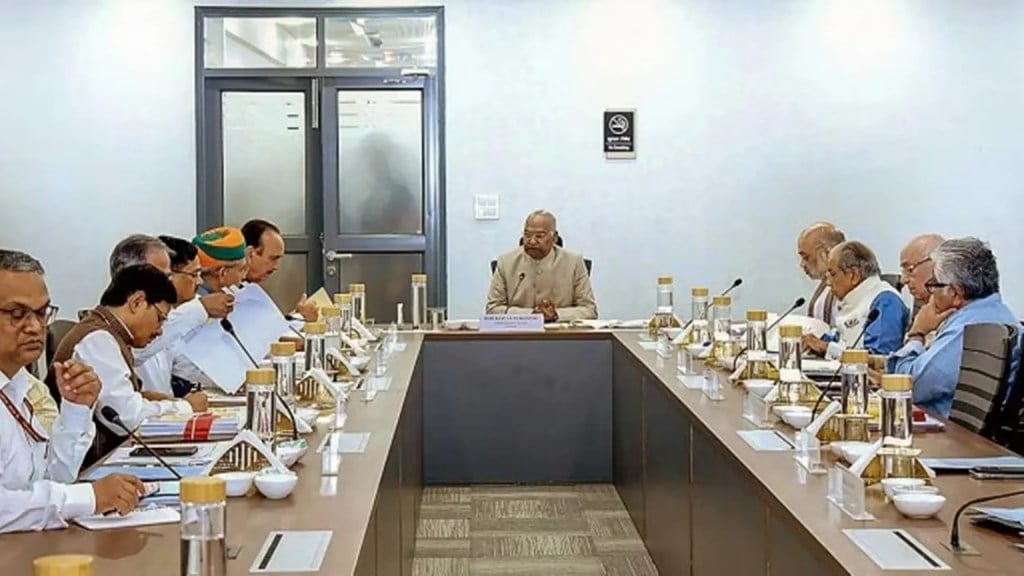A high-level committee set up to draw a roadmap for the One Nation One Election, headed by former President Ram Nath Kovind, is expected to submit its report to President Droupadi Murmu on Thursday, according to Indian Express sources.
The committee is likely to recommend a concrete model for one nation-one election — as opposed to suggesting options — for holding simultaneous elections.
The committee has debated the German model of a constructive vote of no-confidence — where a no-confidence motion against the incumbent can be brought if there is a positive vote of confidence in a successor — but decided against recommending it. The panel, however, has found it to be “against the tenets of Indian democracy”, a source said. The committee has also reportedly focussed on the economic benefits of simultaneous elections.
Also Read: One Nation, One Election – Explained, idea and arguments around it
The Law Commission, in its 2018 draft report, had recommended the “constructive vote of no-confidence” as a way to ensure the stability of governments.
The panel, headed by Kovind, is expected to submit an eight-volume report, running into 18,000 pages.
After the panel was appointed by the Union Law Ministry in September 2023 to make recommendations for holding simultaneous elections to the Lok Sabha, State Assemblies, municipalities and panchayats, it met representatives of political parties, retired Chief Justices, former Chief Election Commissioners, industrialists and economists as a part of its consultations with stakeholders.
Also Read: ‘One nation, one election’ report likely to be out by start of March, says Amit Shah
It also invited comments from the public in January. In a statement in January, the committee said it had received 20,972 responses, of which 81 per cent were in favour of simultaneous elections.
Apart from Kovind, the committee includes Home Minister Amit Shah, former Leader of Opposition in the Rajya Sabha Ghulam Nabi Azad, former Finance Commission chairperson N K Singh, former Lok Sabha Secretary-General Subhash C Kashyap, senior advocate Harish Salve, and former Chief Vigilance Commissioner Sanjay Kothari.
Also Read: Dangers of One Nation One Election
The committee was asked to suggest specific amendments to the Constitution, the Representation of the People Act, 1950, the RP Act, 1951 and the rules framed under them. It was also tasked with examining whether any amendments to the Constitution would require to be ratified by states.

